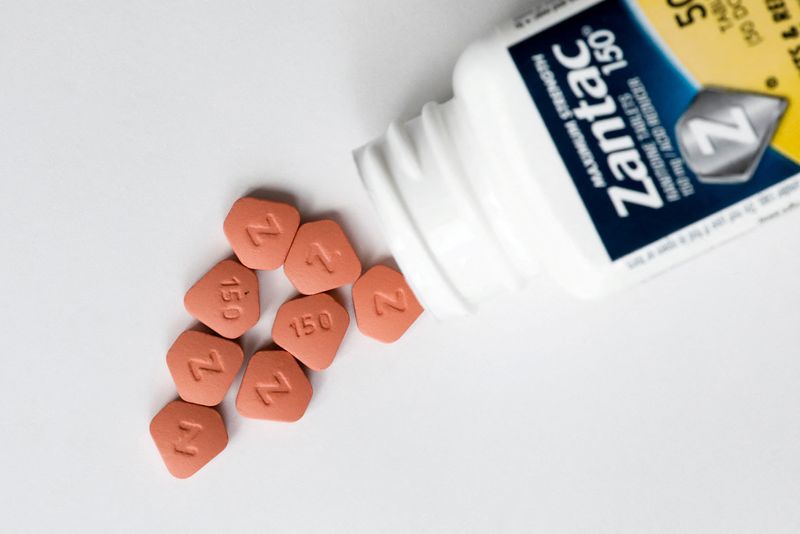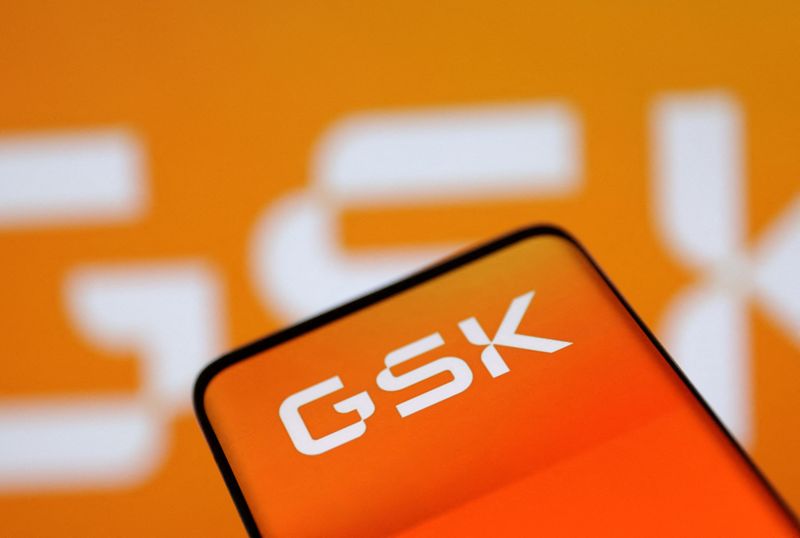By Eva Mathews and Maggie Fick
(Reuters) - GSK on Wednesday said it agreed to settle another lawsuit in California alleging its discontinued heartburn drug Zantac caused cancer, as the British drugmaker sought to end costly litigation that has weighed on shares.
The company, which has so far only settled cases in California, did not give the financial details of the settlement but said it was a "non-material" sum.
Citi analysts estimate GSK will settle all the Zantac cases against it for a total of about $5 billion in the first quarter of 2024, clearing what it called a "still relevant" overhang for its investment case and a distraction for management.
The trial for the Cantlay/Harper case, which was set to begin on Nov. 13, will now be dismissed, GSK said, adding it had also settled three remaining breast cancer cases in California related to the same drug.
The latest settlements in California were related to cases due to go to trial in November, with a further set scheduled to begin in Delaware courts in January, GSK said. The company still faces about 79,000 cases related to Zantac in the United States, with 73,000 of them in Delaware.
By closing these cases before the bigger cases in Delaware in January, GSK takes away the potential risk of losing the California cases and being subject to greater settlement demands from the plaintiffs, a GSK shareholder who declined to be named told Reuters.
Shares in GSK rose more than 2% to a 10-month high of 1,559 pence on Wednesday, briefly making it the best performer on London's blue-chip FTSE 100. There were last up 0.65%.
GSK did not admit any liability and said it would vigorously defend itself in any other Zantac cases.
IMMEDIATE OVERHANG REMOVED
The settlement removes a risk for next month, enabling investors to focus on the launch of GSK's new vaccine for respiratory syncytial virus (RSV), called Arexvy, said JP Morgan analysts. Barclays, Jeffries and other analystS expect strong third-quarter results from GSK next month based on better-than-expected sales so far of Arexvy in the United States after its regulatory approval there in May.
First approved in 1983, Zantac became the world's best selling medicine in 1988 and one of the first-ever drugs to top $1 billion in annual sales.
Originally marketed by a forerunner of GSK, it was later sold successively to Pfizer (NYSE:PFE), Boehringer Ingelheim and finally Sanofi (NASDAQ:SNY). Those companies also face lawsuits over the drug.
In 2019, some manufacturers and pharmacies halted Zantac sales over concerns that its active ingredient, ranitidine, degraded over time to form a chemical called NDMA. While NDMA can be present in low levels in food and water, research has found it causes cancer in larger amounts.
The FDA in 2020 pulled all brand name Zantac and generic versions of the drug off the market, triggering a wave of lawsuits.
Concerns about protracted legal wrangling and compensation wiped almost $40 billion off the market value of GSK, Sanofi, Pfizer and GSK-spinoff Haleon over roughly a week in August 2022.

In June, GSK agreed to settle a similar lawsuit in California.
California is generally seen as a more challenging legal environment for multinational companies as courts are known to be friendlier to plaintiffs. Citi expects the company to settle another 15 cases in the state for "larger considerations".
